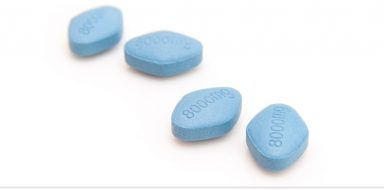Harnessing Nature's Power
You can find hundreds of herbal products online that claim to relieve asthma symptoms. But do they actually work, or are they too good to be true? We'll be taking a look at herbs for asthma so you can know for sure.
Herbs have been used for thousands for medicinal purposes, and now research is confirming the benefits of many of them. Many work by decreasing inflammation, boosting the immune system and promoting the body’s ability to heal.
However, do not assume that everything natural is 100% safe. While herbs have an excellent safety profile and generally speaking are well tolerated (as long as you take the recommended dose) they can trigger allergic reactions in some individuals. If you have food or environmental allergies you should use them cautiously.
Herbs can also interfere with prescription drugs, influencing absorption and augmenting or reducing their efficacy. Finally, herbal products are not evaluated by the FDA for safety and efficacy, so you should buy your products only from a reputable, high-quality brand.
The following herbs have been researched in scientific studies and have been shown to have benefits for asthmatics. Always check with your doctor before you start taking any herbal medicine.
1. Boswellia
Also known as salai guggal or Indian frankincense, boswellia is one of the most popular herbs in Ayurvedic medicine. It has been used for thousands of years for various health concerns including asthma, arthritis and inflammatory bowel diseases.
Boswellia can help decrease the frequency of asthma attacks and improve the function of the lungs, according to a randomized controlled study conducted over six weeks. It also appears to help improve the efficacy of some prescription drugs, including leukotriene modifiers.
The active ingredient in the herb, called boswellic acid, helps decrease inflammation and inhibits 5-lipooxygenase (5-LO), an enzyme that produces leukotriene. Leukotrienes are substances that make the bronchial muscles contract.
Boswellia should be used cautiously if you take cholesterol-lowering medication or anti-inflammatory drugs like naproxen. If you are pregnant or trying to become pregnant you should not use this herb as it increases blood flow in the uterus and makes miscarriage more likely.
2. Coleus Forskohlii
This is another Ayurvedic herb that can help asthma patients, although larger studies are needed to confirm its benefits. Besides having anti-allergy and bronchodilator effects, this herb is also thought to help with managing weight loss, depression, schizophrenia and increased intraocular pressure. It also appears to have the ability to fight cancer.
The anti-asthma effects appear to derive from the fact that it inhibits the release of histamines and leukotrienes. This herb should be avoided by those who have diabetes or thyroid conditions, and used cautiously by those who take blood thinners and some drugs for heart disease/high blood pressure.
3. Tylophora
Tylophora also has a long history of use in Ayurvedic medicine. But it is no longer just a folk remedy, as several scientific studies have found that it can help relieve asthma symptoms. Tylophora has been found beneficial for raising FEV1 (a marker of lung function), and many study participants experienced moderate to complete improvement in asthma symptoms.
Do not take this herb if you are pregnant, or if you have diabetes, heart disease or high blood pressure.
4. Wenyang Tongluo
Wenyang tongluo is an herbal combination used in Japan, and its main ingredient is roasted mahuang. One randomized study divided subjects into two groups — one group received the Japanese herb combination while the second group received prescription drugs salbutamol and beclomethasone.
Both groups experienced symptom improvement, but the group that received the herb mixture had even better FEV1 improvement. Since wenyang tongluo contains multiple herbs, it may also have multiple interactions with other herbs and drugs, and thus should be used under medical supervision.
5. Ginko Biloba
The benefits of using ginkgo biloba for asthma and bronchitis were first recorded around 2600 BC. Over the years, ginkgo has helped manage many other health conditions — it helps improve memory problems associated with Alzheimer’s disease, headaches, mood problems (including depression), sexual performance, eye conditions (i.e. glaucoma, diabetic retinopathy) and many more.
In a placebo-controlled study, Gingko significantly increased FEV1 in children and young adults. Ginkgo can interfere with non-steroid anti-inflammatory drugs like ibuprofen and blood thinners.
[list_bottom]
6. Pycnogenol
Pycnogenol is an herbal product based on an extract from French marine pine bark. A review of multiple studies found that pycnogenol can help reduce symptoms of asthma and improve lung function. Another study conducted in children with asthma found that a combination of this extract and conventional drugs leads to fewer symptoms and decreased need for rescue medication compared with prescription drugs alone.
This herb should not be taken if you have diabetes, or take medication for blood pressure and blood thinners.
Read more about alternative treatments for asthma over at NewLifeOutlook.






